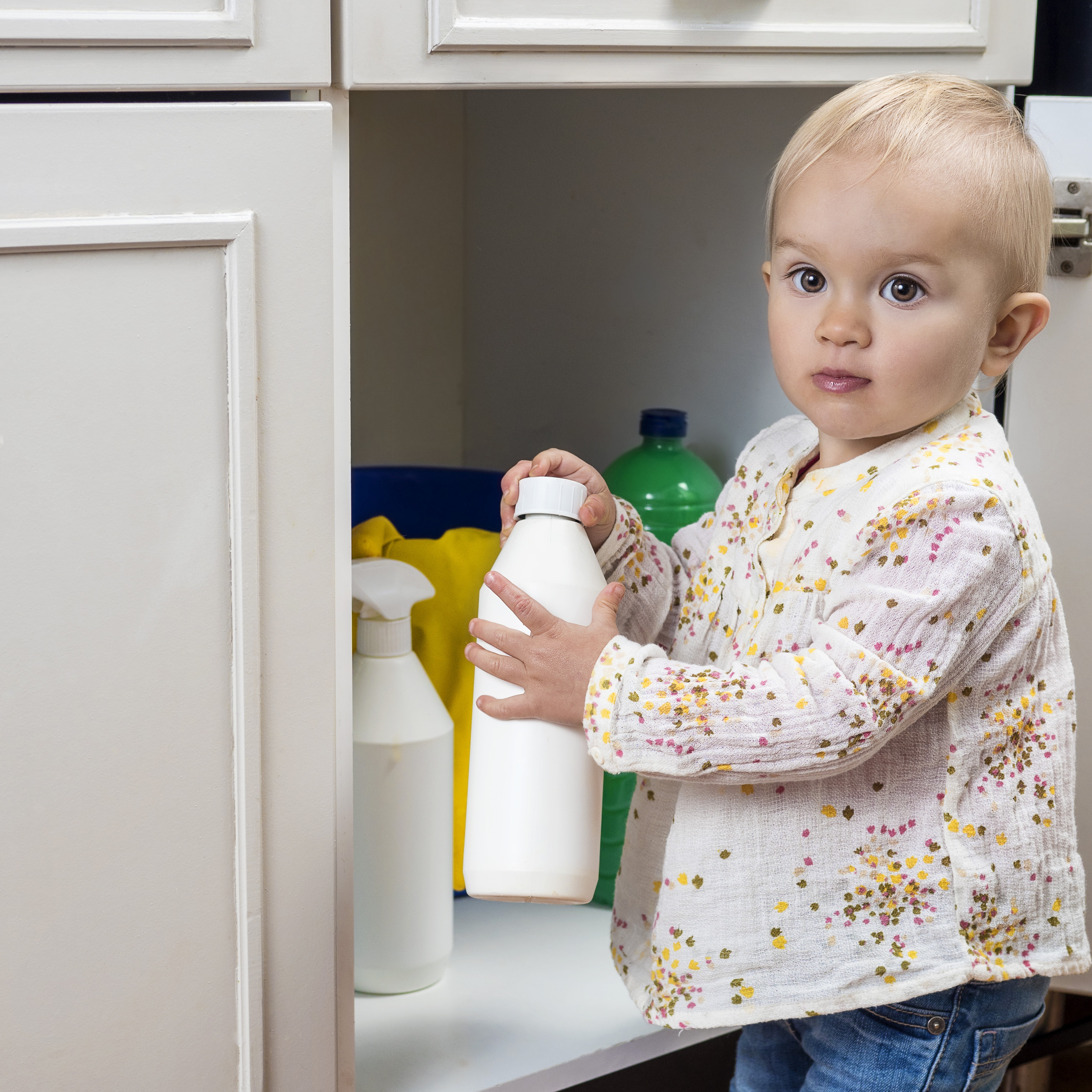Safe storage proves most effective at preventing poisoning
Shirley Wilfong-Pritchard - 21 March 2022

What parents and caregivers need to know to keep children safe from poisoning. Photo: Supplied.
Every day, Alberta’s Poison and Drug Information Service (PADIS) receives an average of 70 calls concerning potential poisonings, almost half of them — 44 percent — concerning children under five years old. Each year—in addition to the human toll—unintentional poisonings cost the province on average $770 million and account for roughly 15,000 emergency room visits and 1,600 hospitalizations in an already overburdened healthcare system.
As we enter National Poison Prevention Week, we spoke to Kathy Belton, associate director of the Injury Prevention Centre (IPC) in the School of Public Health at the University of Alberta. A U of A grad with an MEd in adult education and a PhD in epidemiology, Belton’s research focuses on knowledge translation for the prevention of unintentional injuries.
Poisons come in many different shapes and sizes and are found throughout our homes, says Belton. Substances most often involved in incidents involving children under five include ibuprofen, acetaminophen, vitamin D, ethanol-based hand sanitizer, melatonin, essential oils, even toothpaste with fluoride and glow sticks.
Other hazards include medications, cannabis, tobacco, alcohol, cleaners, detergent pods, disinfectants, and cosmetics. Our garages or sheds can also have pesticides, fertilizers, and a whole host of automotive fluids from oil to windshield wiper fluid—all can be poisonous if used incorrectly.
How can we best avoid accidental poisoning, with so many potential risks in our living space? Belton has the following tips:
- Store poisons safely—locked up tight, out of sight, and out of reach of children. Most unintentional poisonings among young children occur with substances stored in locations that do not require the child to climb.
- Keep poisons in their original containers. This ensures you know what the product is and have instructions for using it safely.
- Keep visitors’ coats and bags out of reach of children. They may contain medications and other potentially dangerous personal care items.
- If you think someone has been poisoned, call PADIS at 1-800-332-1414.
As the survivor of a boating accident that resulted in a massive brain injury and a severed radial bone, Belton knows firsthand how lives can change in a single moment.
“The work IPC is doing is important because we don't just have to treat illness and injury; we can do something to prevent it.”
The Injury Prevention Centre works with partners including PADIS, Alberta Health Services, day homes, pharmacies, parent/caregiver support agencies, cannabis retailers, and Safe Communities to increase awareness and promote action to prevent poisoning. To learn more, visit https://injurypreventioncentre.ca/campaigns/poison-prevention.